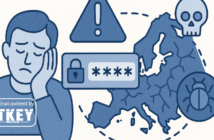It is said that we laugh most at jokes we have already heard. Perhaps. Undoubtedly, however, we laugh at the ones we understand. This is well known to the creators of dubbing for popular animated films, who not only translate the text from one language into another but also introduce elements of the culture of the country where the production is targeted to. Embedding the translation in the local cultural and social context, however, is not only important in culture but also in business. Adapting the content on a website or app to the needs of a specific country is a huge competitive advantage.
In Poland, Żwirek was paired with Muchomorek; in the Czech Republic it was Mařenka and Jeníček; and in the original language version, a fragment of the English children’s rhyme ‘The Muffin Man’ was used. In each of these countries, the interrogation scene of Gingy by Lord Farquaad from Shrek became iconic. This wouldn’t have happened without the local references. It is precisely the texts deeply rooted in pop culture that make us more likely to identify with the characters. For this reason, viewers from different countries often believe that dubbing in their language is the best. The same can apply to a website. It can simply be translated, or it can be localized.

Václav Hodek, Founder and CEO at Localazy
‘In this context, we understand localization as translation with a capital T, as we are translating not just the text itself, but above all, its meaning, embedding the content in the context in which it will be used,’ says Václav Hodek, CEO of Localazy, a platform that innovatively localizes websites and applications.
But is it really necessary? Practically every internet-connected device gives us the ability to automatically translate the content of websites and applications. Clumsy translations do not fully convey what the original author intended and often do not inspire trust. This is confirmed by reports, including a study conducted in ten countries by CSA Research, which found that 75% of consumers prefer to shop on websites available in their native language, and 60% of them never or almost never make purchases on websites available only in English. Similar conclusions can be drawn from the E-commerce in Poland 2023 report prepared by Gemius, according to which 79% of Polish internet users shop online, but only 30% shop in foreign e-stores.
Returning to our Shrek, in the English version, the flying Donkey says, ‘You might have seen a housefly, maybe even superfly, but I bet you ain’t never seen a donkey fly.’ The Czechs had Donkey say, ‘Možná znáte létajicího Čestmíra nebo Saxánu,’ and in the Polish translation, Jerzy Stuhr – who voices Donkey – paraphrased his famous song ‘Śpiewać każdy może.’ Maintaining the color and local exoticism of the content is a higher level of translation that makes a project feel closer to us and encourages its use. So far, however, this has involved a considerable investment in a good translator who not only knows the language but also navigates industry jargon well and understands the context.
‘There are about 7,000 different languages in the world, and even more dialects, yet most websites and applications are created only in English. Therefore, we have adopted a mission to provide creators with an easy and cost-effective tool for the best translation, one that reflects local specificity. This will allow billions of people who do not speak English to take full advantage of what the global network has to offer,’ Mr Hodek explains.
All this is possible thanks to the combination of technology and humans’ best features. The ‘quickly, efficiently, and cost-effectively’ part is handled by software supported by AI functions, while the human, local, and personalized character is added by a precisely chosen translator from a wide base of translators. This is an example of the optimal use of available market solutions to create additional tools to make technology more inclusive and accessible.

Jan built his experience over several years at one of the leading venture capital groups in Poland, where he was responsible for project analysis, investment processes, and operational work with portfolio companies. For some time now, he has been developing his own project, Commly, which focuses on supporting startups and technology companies in the areas of international communication, partnerships, and effective market reach. Jan is a graduate of the University of Economics in Poznań and is deeply involved in the development of the local startup ecosystem.





